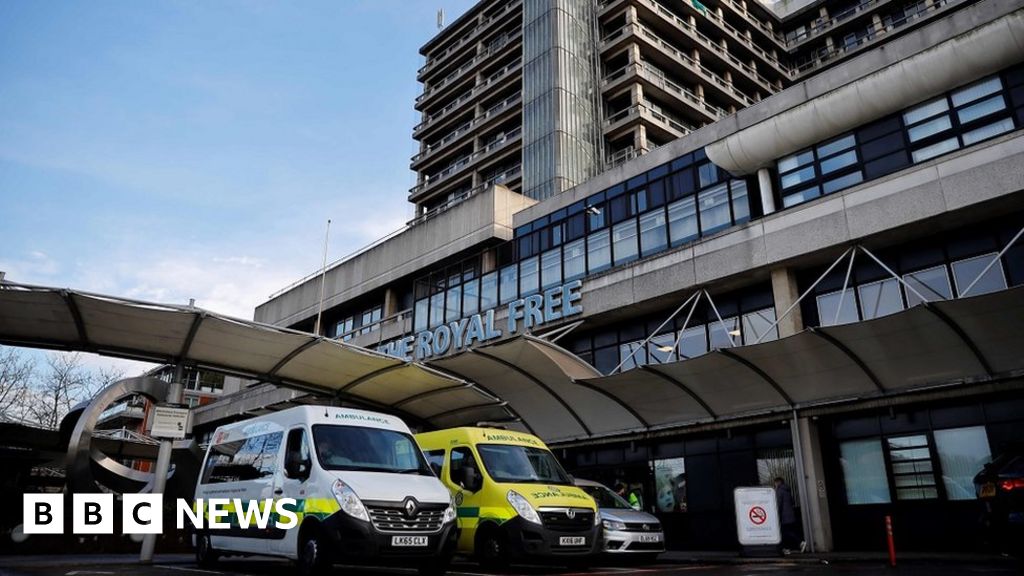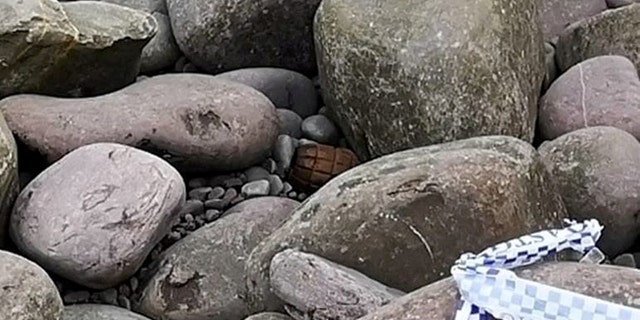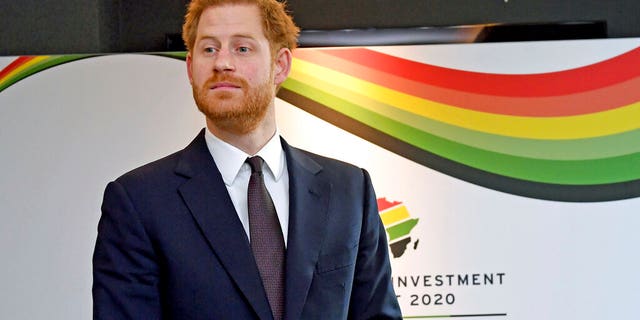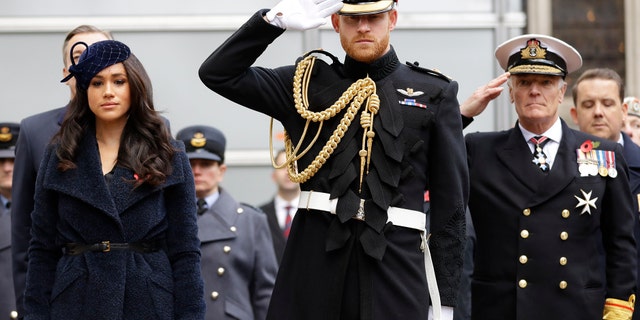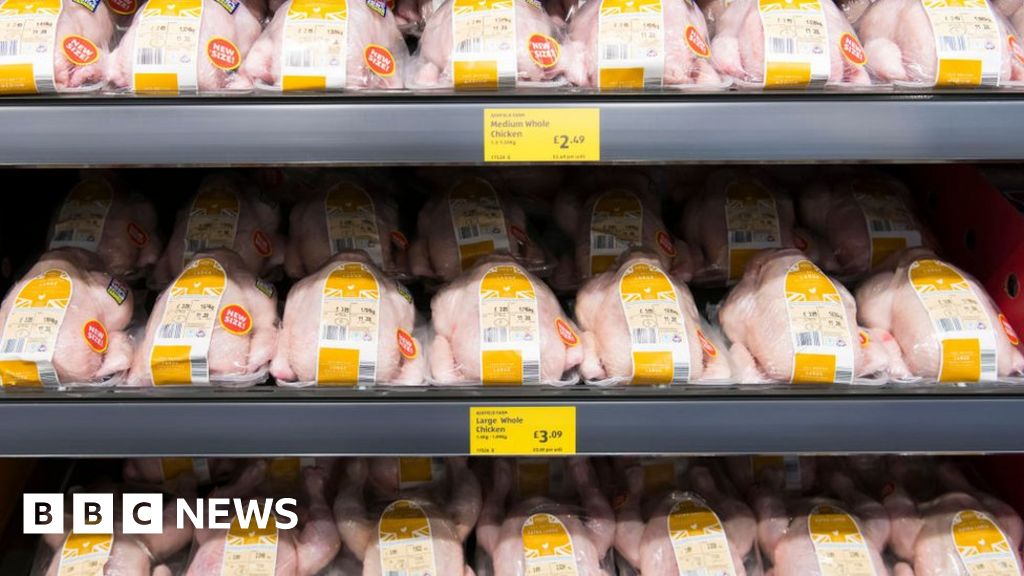Two more patients have tested positive for coronavirus in England, bringing the total number of UK cases to 15.
They have been transferred to specialist NHS infection centres in Liverpool and London, the Department of Health said.
The virus was passed on while they were in Italy and Tenerife, said England's chief medical officer Prof Chris Whitty.
Ministers have said they expect more cases to emerge.
The new patients are being treated at specialist centres at the Royal Free Hospital, London, and the Royal Liverpool Hospital.
The person who contracted the virus in Tenerife is from Derbyshire. A school in the county has closed because of the case.
A medical centre less than a mile from the school has also closed due to a "confirmed case" of the virus.
It is not clear which part of the UK the other person is from. They contracted the virus in northern Italy.
No 10 defends Tenerife response
Italy now has more than 500 cases of coronavirus with authorities there reporting that 17 people have died.
In Tenerife, 168 Britons were told to isolate themselves at the H10 Costa Adeje Palace hotel after at least four guests, including an Italian doctor, tested positive for coronavirus.
The Canary Islands minister of health subsequently announced that 130 of about 700 guests staying at the hotel will be able to leave, as they arrived on Monday and did not come into contact with the four Italians who tested positive.
About 50 of them are understood to be British.
Downing Street has defended the response to the situation at the hotel.
The prime minister's official spokesman said: "The Foreign Office has been in contact with more than 100 British nationals who are staying in the hotel.
"They are providing them with support, they are also in regular contact with local authorities and tour companies to share information."
Prof Yvonne Doyle, medical director at Public Health England, said PHE had sent a health protection specialist to Tenerife to work with the Spanish authorities to better understand the public health measures that have been put in place in the hotel.
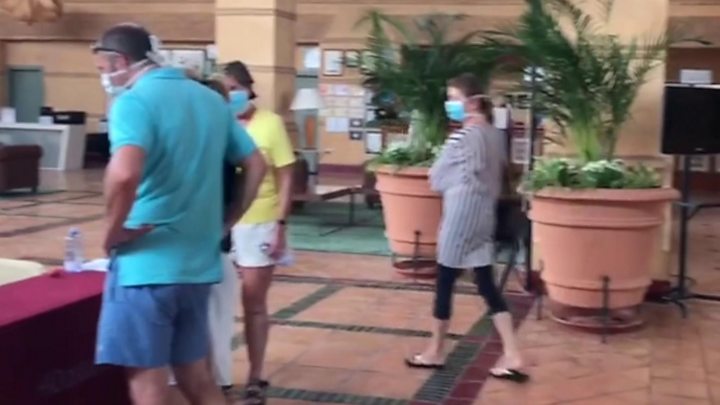
Media playback is unsupported on your device
School closures
A number of schools have sent pupils home or closed after they returned from skiing trips in northern Italy over half term after the government updated the advice for travellers returning from affected countries.
On Thursday, Dulwich Prep in south London announced it was closing immediately as a "precautionary measure".
In a statement on its website, the school said unrelated pupils from different sections of the school had become unwell after returning from holiday in one of the "category two" areas.
The school added that it hoped to reopen on Monday.
Globally, more than 80,000 people in more than 40 countries have now been infected.
Covid-19, the respiratory disease caused by the virus, has killed more than 2,700 people. Most of the deaths have been in China, where the virus originated in December.
Ministers and public health officials had always been clear there would be more cases in the UK given the way coronavirus has spread around the globe.
Teams from Public Health England will be busy tracing the contacts these two individuals have had on their journeys from Italy and Tenerife and since they returned.
This detective work will be essential in containing any further spread of the virus.
At the moment we haven't had any human-to-human transmission in the UK.
The British government is hopeful it can contain outbreaks.
But even if it doesn't, it wants to delay them until the spring or summer when the weather will be warmer and there will be less intense pressure on the NHS.
'Only a matter of time'
It comes as England's chief medical officer, Prof Whitty, warned onward transmission of the virus between people in the UK was "just a matter of time in my view".
He said there could be a potential "social cost" if the virus intensifies, which could include reducing mass gatherings and closing schools.
"One of the things that's really clear with this virus, much more so than flu, is that anything we do we're going to have to do for quite a long period of time, probably more than two months."
Meanwhile, the Cabinet Office has been in communication with local authorities about their "mass death preparedness" - what their plans are to deal with pressures on public services if deaths from coronavirus are severe, BBC Newsnight understands.
This includes, among other things, where local authorities might locate new, and perhaps mass, burial sites, should they be needed.
As of 27 February, a total of 7,690 people in the UK have been tested for the virus.
Of the 15 to have tested positive, eight have so far been discharged from hospital.
The risk level in the UK was raised to moderate after the World Health Organization declared it a public health emergency of international concern.
The main signs of infection are fever and a cough, as well as shortness of breath and breathing difficulties.
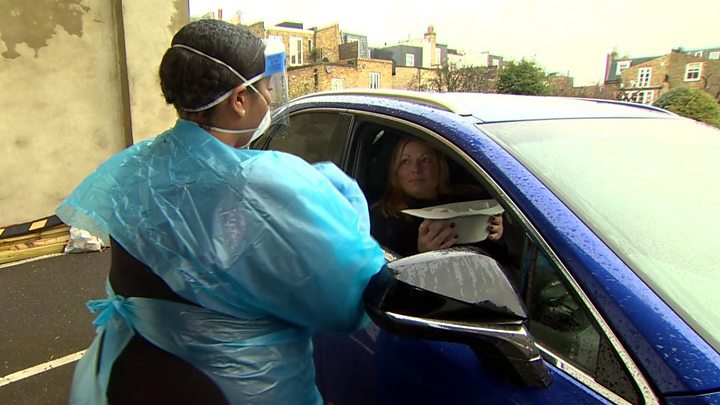
Media playback is unsupported on your device
What should I do to minimise the risk?
The new cases in England come as the government is set to launch a public information campaign, which will focus on hygiene and how to prevent the spread of infection.
The current advice is to cover your mouth and nose with a tissue or sleeve when you cough or sneeze, throw away tissues immediately after use and wash your hands frequently.
It is also advised to avoid touching your eyes, nose or mouth with unclean hands and avoid close contact with people who are unwell.
What is the travel advice?
The Foreign and Commonwealth Office (FCO) is warning against all but essential travel to 11 quarantined towns in Italy, two cities in South Korea and mainland China.
The Department of Health says anyone who has returned from those specified parts of Italy and South Korea, as well as Iran, since 19 February should call the NHS 111 helpline, stay indoors and avoid contact with others.
Anyone who has returned in the past 14 days from Hubei Province in China - where the FCO has warned against all travel - should do the same.
People should also call the helpline and self-isolate if they are experiencing symptoms - however mild - after returning to the UK from the following places:
- Vietnam, Cambodia, Laos, Myanmar and parts of northern Italy since 19 February
- Mainland China, Thailand, Japan, South Korea, Hong Kong, Taiwan, Singapore, Malaysia or Macau, in the past 14 days
Have you been affected by the coronavirus? Or do you have any information to share? Get in touch by emailing haveyoursay@bbc.co.uk.
Please include a contact number if you are willing to speak to a BBC journalist. You can also contact us in the following ways:
https://news.google.com/__i/rss/rd/articles/CBMiJGh0dHBzOi8vd3d3LmJiYy5jb20vbmV3cy91ay01MTY1NjYwOdIBKGh0dHBzOi8vd3d3LmJiYy5jb20vbmV3cy9hbXAvdWstNTE2NTY2MDk?oc=5
2020-02-28 04:24:09Z
52780635529545
